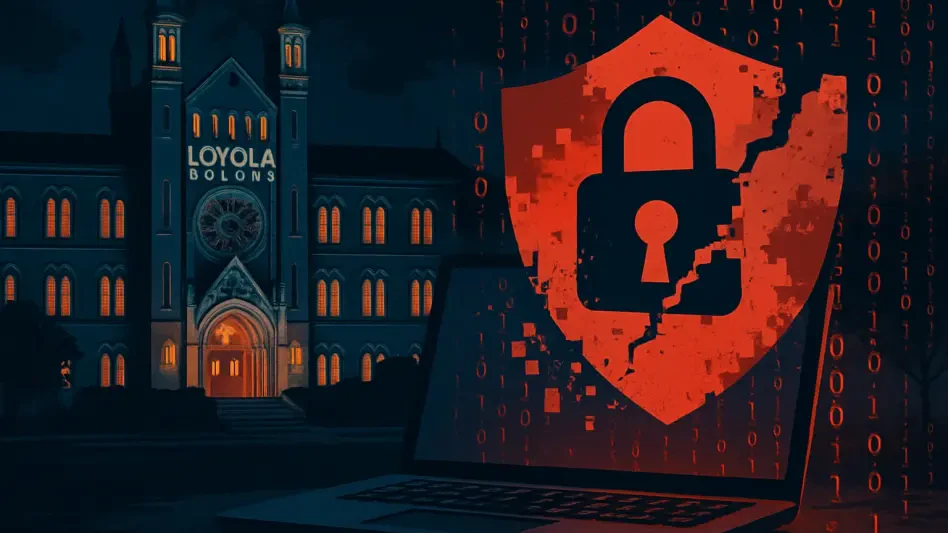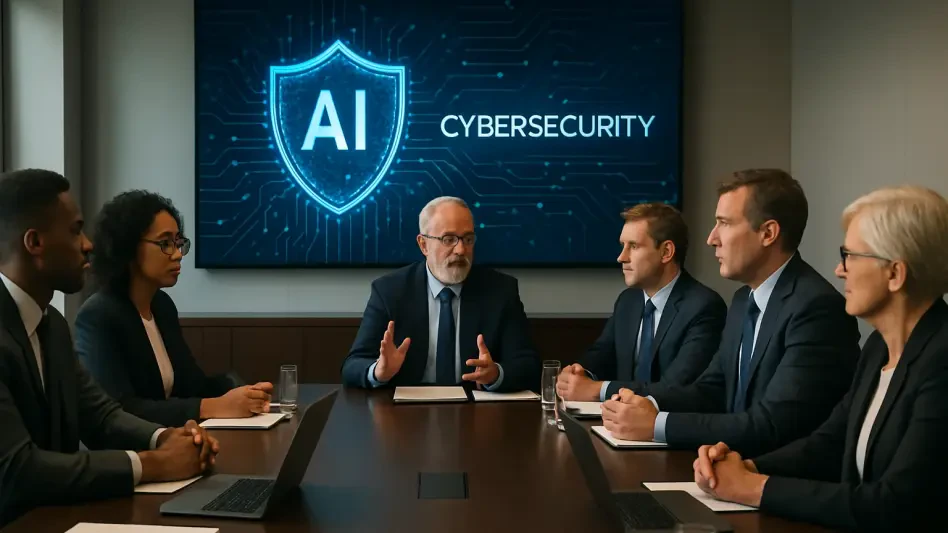Rebecca Taylor’s career journey is as surprising as it is inspiring. Starting with a degree in English and Creative Writing, Taylor has navigated a non-linear path to become a prominent figure in the cybersecurity realm. Her story challenges traditional career assumptions and showcases the evolving landscape of the cybersecurity industry.
Breaking into Cybersecurity
Non-Linear Career Path
Endeavors into the cybersecurity field from a creative writing background might seem unconventional, but Rebecca Taylor’s journey exemplifies how diverse educational experiences can lead to success in specialized fields. After graduating with a degree in English and Creative Writing, Taylor’s entry into cybersecurity seemed unplanned and serendipitous. Her initial roles at Secureworks were not clearly mapped out but instead formed through a dynamic interplay of opportunity and keen interest. Gradually, these roles gave her exposure to the cybersecurity field, where she discovered the extensive array of skills beyond just technical expertise needed to thrive. Communication, problem-solving, and critical thinking skills she honed through her education were immensely valuable.
Taylor’s career epitomizes the idea that career paths need not be linear to be successful or fulfilling. Her unique transition into cybersecurity underscores that a person’s educational background does not invariably determine their professional trajectory. Taylor’s story serves as a powerful reminder that one’s passion, drive, and ability to adapt can open doors in unexpected places. This non-linear path not only brought her personal satisfaction but also filled a critical need in cybersecurity for individuals who could think outside the box, bring fresh perspectives, and approach problems creatively, complementing the traditional technical expertise.
Misconceptions about Cybersecurity
Rebecca Taylor’s journey also serves to highlight and challenge several common misconceptions about pursuing a career in cybersecurity. One prevalent myth is the notion that cybersecurity roles strictly demand advanced technical skills. While technical know-how is undoubtedly vital for specific functions within the field, Taylor emphasizes that cybersecurity also requires a blend of various other capabilities. Skills such as communication, strategic problem-solving, and a profound understanding of human behavior are equally essential.
Taylor argues that these misconceptions often deter non-technical individuals from considering cybersecurity careers, thereby narrowing the field’s talent pool. By drawing from diverse educational backgrounds, including humanities and social sciences, the cybersecurity industry can benefit from varied approaches and insights. Taylor herself is a testament to how her background in English and Creative Writing contributed to her ability to analyze complex scenarios and effectively communicate strategies and findings. Her success story is an empowering narrative that invites individuals without traditional technical backgrounds to reconsider their potential to make meaningful contributions to this ever-evolving field.
The Role of Mentorship
Importance of Mentorship
Mentorship has been an indispensable aspect of Rebecca Taylor’s career development in cybersecurity. From the beginning of her foray into the field, guidance from more experienced professionals provided her with crucial insights and helped her build the expertise required to navigate the complex landscape of cyber threats. Taylor often cites her mentors as key influences who not only shared their knowledge but also taught her the intricacies of cybersecurity that cannot be learned from textbooks alone. This on-the-job learning became a cornerstone of her professional growth.
The importance of mentorship in bridging knowledge gaps for newcomers to the cybersecurity industry cannot be overstated. Especially for individuals from non-traditional backgrounds like Taylor, mentorship helps demystify the field and provides practical understanding alongside technical skills. Mentorship fosters a collaborative environment where experienced professionals pass on proven strategies and offer support in overcoming challenges. Taylor’s experience highlights that the cybersecurity community thrives when seasoned professionals step forward to guide and nurture the next generation of cybersecurity experts. It’s an essential practice that enriches the industry with diversified knowledge and fortified networks.
Continuous Learning and Adaptability
One of Rebecca Taylor’s core beliefs that has propelled her success in cybersecurity is the necessity of continuous learning and adaptability. In a field that is constantly evolving with new threats and technologies, staying curious and open to new learning opportunities is non-negotiable. Taylor’s career at Secureworks showcases her willingness to embrace new roles and challenges as the landscape of cybersecurity changes. Whether it’s getting acquainted with emerging threats or leveraging new technologies, she remains committed to expanding her knowledge base and refining her skill set.
Taylor’s journey underscores that emerging and thriving in cybersecurity requires an inherent openness to reinvent oneself professionally. She has navigated various roles within Secureworks, each time bringing her rich background in creative thinking to tackle new challenges. Her adaptability has not only addressed the immediate needs of her roles but also paved the way for innovative approaches to cybersecurity. This mindset of continuous learning also encourages professional resilience, preparing individuals to stay ahead of adversaries and craft more robust strategies to protect digital environments.
Focus on Emerging Threats
Monitoring the Dark Web
In her current role at Secureworks, Rebecca Taylor has honed a specialized skill set in identifying and analyzing emerging cyber threats from the dark web. This niche area of cybersecurity involves deep immersion in underground forums and websites where cybercriminals engage in illicit activities, such as trading stolen data. Taylor’s expertise particularly focuses on monitoring access brokers and the sale of Ransomware-as-a-Service, a business model that has alarmingly facilitated the proliferation of ransomware attacks. By understanding the methods and tactics of these cybercriminals, Taylor and her team are better positioned to anticipate potential threats and develop effective countermeasures.
The challenges of monitoring the dark web require not only advanced technical skills but also a keen understanding of human behavior and criminal psychology. Taylor’s background in creative writing has serendipitously equipped her with a unique toolkit for this role. Her ability to analyze, interpret, and communicate nuanced information has proven invaluable in making sense of the complex and often obscure data originating from the dark web. This effort is vital in developing pre-emptive strategies and safeguarding organizations against potential attacks. Taylor’s work underscores how unconventional skills can be applied effectively in cybersecurity.
AI in Cybersecurity
Artificial Intelligence (AI) has become an integral part of cybersecurity, and Rebecca Taylor’s work at Secureworks exemplifies how AI technologies are being leveraged to combat emerging threats. AI enhances the ability of cybersecurity teams to sift through vast amounts of data from the dark web, identifying patterns and anomalies that could indicate potential threats. Taylor utilizes AI tools to aid in this analysis, allowing her team to be more proactive and efficient in responding to cyber threats. The inclusion of AI not only speeds up processes but also increases accuracy in threat detection, which is crucial in preempting attacks.
While AI provides significant advantages in cybersecurity, Taylor also points out that cybercriminals are not far behind in adopting these technologies for their malicious activities. Threat actors are leveraging AI to automate attacks, making them more sophisticated and challenging to detect. This creates a constant race between cybersecurity professionals and cybercriminals, each trying to outpace the other with advanced technology. Taylor’s experience highlights the double-edged nature of AI in cybersecurity. It’s a tool that needs to be used judiciously and innovatively to stay ahead of adversaries. This dynamic aspect of AI in the cybersecurity landscape further emphasizes the need for continuous learning and adaptability.
Promoting Awareness and Inclusivity
Online Safety for Children
Beyond her professional responsibilities, Rebecca Taylor is deeply committed to raising awareness about online safety, particularly for vulnerable populations like children. Her efforts include delivering impactful talks, such as her TEDx presentation focused on protecting the digital footprints of young people. Taylor’s concern is rooted in the increasing digital exposure children face and the potential risks associated with it. By educating parents, educators, and children themselves, she aims to foster more secure digital practices and awareness of privacy concerns from an early age.
Taylor’s dedication to online safety extends globally, demonstrated by her work in translating essential safety materials for African schools. This effort ensures that the knowledge and practices required to protect one’s digital identity are accessible to a broader audience, regardless of geographical barriers. Such initiatives are crucial in a world where internet access is widespread, and cyber threats know no borders. Taylor’s commitment to public education not only enhances digital literacy but also empowers communities to navigate the digital landscape more safely. It reflects her broader vision of leveraging her expertise for the greater good.
Women in Cybersecurity
Rebecca Taylor’s career journey is noteworthy and motivating, characterized by an unexpected and non-linear trajectory that defies conventional career paths. With a background in English and Creative Writing, one wouldn’t typically predict she would emerge as a key player in the cybersecurity sector. Taylor’s story vividly highlights that career development doesn’t always follow a straight line and emphasizes the dynamic nature of the cybersecurity field. Her progression from a discipline rooted in the humanities to a technical and rapidly evolving industry underscores the importance of adaptability and lifelong learning. Taylor’s career illustrates that diverse skill sets and backgrounds can provide fresh perspectives and innovative solutions in any industry. As cybersecurity continues to evolve, Taylor’s experience serves as a testament to the value of diverse educational foundations and the importance of embracing change. Her journey challenges traditional notions of career paths and inspires others to pursue their passions, regardless of how unconventional they may seem.





